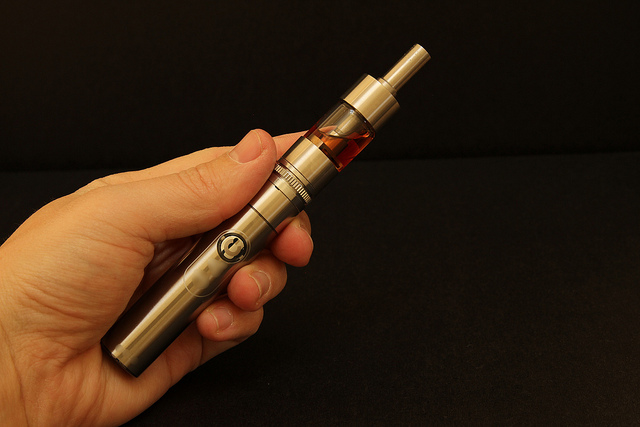
This August, Montgomery County, Maryland will become the first county in the country to adopt a specialized excise tax on e-cigarettes. A tax of 30 percent will be charged on distributors who operate in the county. This new tax – while masked as a public health initiative – is yet another attempt by local governments to raise cash while strangling new industries.
The lead sponsor of this bill, Councilman Tom Hucker, argued that “E-cigarettes should be treated similarly to tobacco products,” referring to the current 30 percent tax on tobacco products in Maryland.
This is fallacious for several reasons. First, e-cigarettes and vapor products are far healthier than traditional combustible cigarettes. E-cigarettes are tobacco-free and lack the carcinogenic chemicals that make smoking so deadly. Second, e-cigarettes are being used by many as an effective way to quit smoking, since users can wean themselves off of the nicotine. As one business owner put it, watching customers quit is a “concern we have for our business… but it’s very rewarding.”
If e-cigarettes are a healthier alternative to tobacco products and can help people quit smoking, why would the government want to subject the industry to a crippling tax?
Because it’s not about health, it’s about money. Advocates claim that this tax would raise between $1.5 and $2.5 million for county coffers. This is absurd. Many customers will simply purchase vapor products online or across county lines to avoid the tax. More likely than not, consumers will have no trouble getting their products tax-free and retailers may be forced across county lines or out of business.
A 20 cents per mL vapor tax that just passed statewide in Kansas is predicted to generate only $2 million in optimistic estimates. Given that Montgomery County has just one-third the population of Kansas and has much greater access to products in neighboring counties, it is hard to imagine that the Montgomery County tax would raise anywhere near the projections.
Electronic cigarettes and vapor products should not be subjected to “sin taxes”; the users are overwhelmingly people trying to atone for their sins by quitting their use of tobacco.
Montgomery County’s misguided new tax – and tax proposals like this all around the country – threatens to kill this fledgling new industry. It does this while adding a disincentive for consumers to make the switch from tobacco to tobacco-free technology products, working at cross-purposes of decades of anti-smoking efforts to improve public health.

